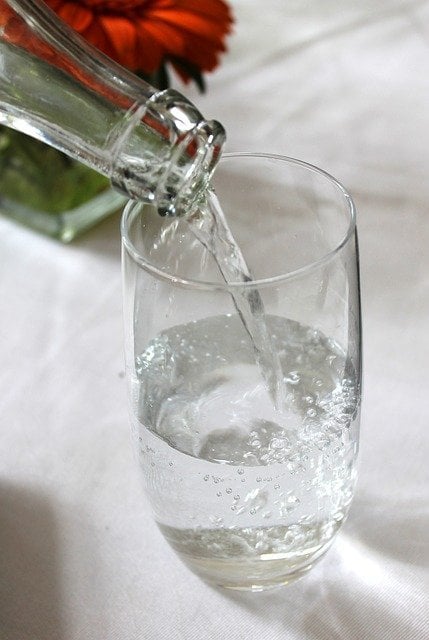Healthy Hydration Is Incredibly Important
One thing often overlooked when it comes to staying healthy is hydration. Healthy hydration is of up-most importance (especially during the cold winter months) because it protects your skin and keeps your body running at optimal capacity! Are you drinking enough water?
Healthy hydration goals
We all know to stay hydrated. We know that we are made of water, that exercise sheds water and so on, it seems relatively simple, and so we don’t worry about it..,
But just what does healthy hydration do to your body? That’s the important question.
Hydration and Your Skin
A large percentage of our bodies are made of water – even at birth. Getting the right amount of water into your body will affect everything from digestion to circulation, as well as the condition and appearance of your skin.

When you do not have enough of it, your body quickly starts to show the effects.
Signs of Skin Dehydration
Once you understand how water affects your skin it is important to learn how to identify signs of dehydration in your skin.
There are a few different ways of doing this. One of the simplest is to do a so-called ‘pinch-test.’ As the name suggests this involves pinching a bit of skin between your thumb and forefinger, gently squeezing for a couple of seconds, and then letting go.
If your skin is in good condition with sufficient fluid to stay healthy then it should spring back immediately into place.
If you are dehydrated then your skin will stay in place and take slightly longer to return to its original condition.
Poor Hydration Causes Dry Skin and Chapped Lips
As well as the effects mentioned above, poor hydration is also a common cause of dry skin.
Rashes, flakiness, and other skin problems can be frustrating to deal with and really knock your confidence.
While medical conditions need to be dealt with by a trained health practitioner, many of these problems can also be solved with one of nature’s best medicines: water.
Drinking more water can keep your body hydrated and thus improve the condition and appearance of your skin – helping to reduce dryness.
The same also applies to dry, chapped lips. Some people can struggle to learn how to get rid of chapped lips but it’s actually quite simple. Environmental factors and a lack of moisture can cause lips to dry out and even crack, making them very sore. Replenishing lost moisture can help relieve this dryness.
Achieving Healthy Hydration
So, the next question is how to get rid of chapped lips and dry skin if dehydration is the cause?
The first thing to do is think about how much fluid you are consuming each day and work out ways to increase your intake. Although many of us like to drink coffee or even tea at the office or while studying, there is some research that points towards the fact that these drinks can be dehydrating due to the amount of caffeine they contain.
This means you could be getting far less water than you think you are.
To combat this, a good piece of advice is to drink more plain water. It may not tickle your taste buds in the same way as some other drinks but water really is your body’s (and skin’s) best tonic.
You can always add natural flavors such as lemon, ginger, or mint or swap to caffeine-free teas and decaffeinated coffees for tasty options but plain water will still do the job.
Wrap-Up
When it comes to how much water to drink each day, experts are divided on the topic but generally around 8 glasses is seen as a good daily target.
So, if you want to get rid of chapped lips, solve dry skin problems, and take good care of your body, then try drinking more water for a couple of weeks and see how you get on.
- The Importance Of Hydration For Your Body - December 22, 2015
- Running Foot Care Tips For Runners - November 25, 2015
- How to Streamline Your Post-Workout Routine - September 25, 2015